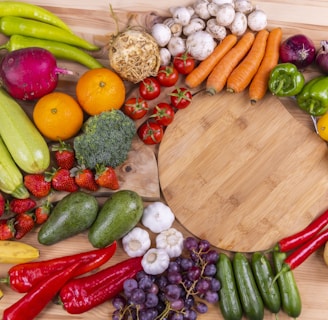Dr robin edwards, obstetrician and gynaecologist, singapore
Healthy eating in pregnancy
The do's, don'ts and don't knows of nutritional advice for pregnancy
3/8/20252 min read


It is common for patients to ask about whether there are any dietary changes that they need to make when they find out they are pregnant. In fact even outside of pregnancy patients often ask about whether their condition could be related to their diet. It's understandable given the mantra "you are what you eat" which is often used either as an encouragement towards healthy eating, or criticism of perceived bad eating habits. But we do know that - in general terms - fresh food is better for you than highly processed foods.
In pregnancy women are sometimes told to "eat for two", meaning that they need to increase their dietary intake to take into account the needs of the baby. But literally eating for two, i.e. doubling the amount of food eaten, is not likely to be necessary for most women and could even lead to excessive weight gain. Not to mention the fact that, particularly in the first trimester, the effects of morning sickness and hyperemesis gravidarum mean that many women find it difficult to maintain a normal diet.
There are some foods and beverages known to be more risky or harmful during pregnancy. Alcohol is one of those. The harmful effects of excessive alcohol consumption may not be immediately obvious but over a long period of time, alcohol can be harmful especially to the liver but is also associated with various cancers including breast and bowel. In pregnancy, there is a risk of fetal alcohol syndrome and alcohol is best avoided completely.
Caffeine is another potential risk in pregnancy. There is evidence that caffeine can increase the risk of miscarriage and preterm birth and so it is recommended that in pregnancy you switch to decaffeinated alternatives.
Most foods are safe to eat in pregnancy but unpasteurised cheese and other dairy products should be avoided due to the risk of listeria, and undercooked eggs, cured meats and raw seafood should also be avoided due to the risk of toxoplasmosis and salmonella.
Some foods are likely to be beneficial in pregnancy and those include foods that contain folic acid and iron such as green leafy vegetables and legumes such as lentils and chickpeas.
It is not known why some women have cravings for (or strong aversion to) certain foods in pregnancy but it is always useful to discuss dietary concerns with your obstetrician so advice on safe and unsafe foods can be explored.
Women's Health Singapore
Contact the clinic today to arrange a convenient appointment
© 2025. All rights reserved.
